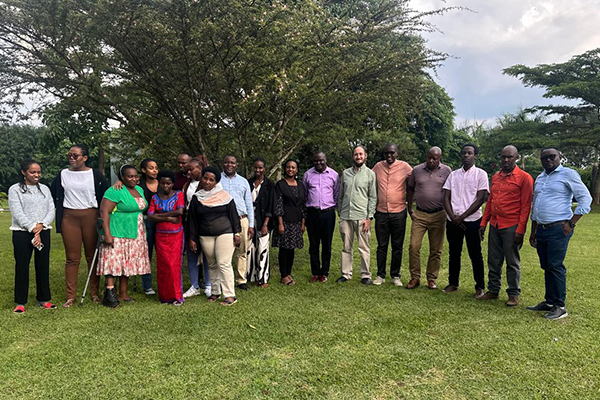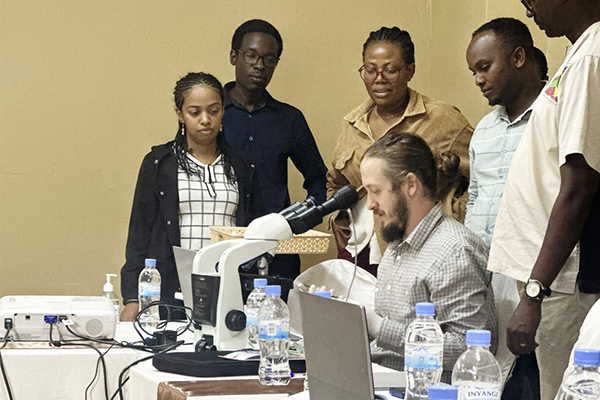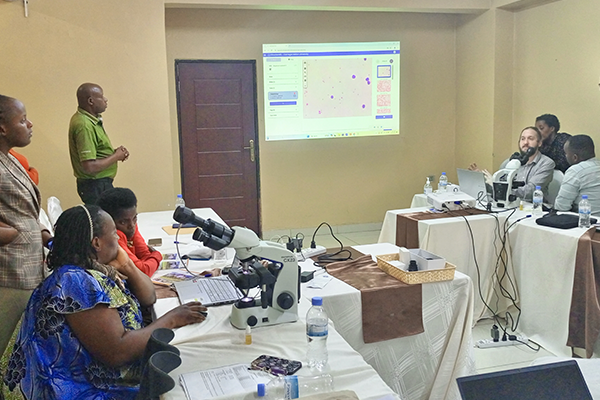Malaria workshop equips laboratory technicians
Eugenia Mawuenya Akpo
Oct 22, 2024
Carnegie Mellon University Africa's AI Healthcare Research Laboratory recently spearheaded a workshop in collaboration with the University of Rwanda, Rwanda Biomedical Centre (RBC), and several district laboratories from Rwanda. This three-day event (held October 8-10) focused on revolutionizing malaria microscopy through advanced digital data collection techniques, marking a milestone in Rwanda's ongoing efforts to combat malaria.
The workshop's primary objective was to equip laboratory technicians with skills essential for digitizing malaria diagnosis processes. Participants were introduced to state-of-the-art equipment, including high-resolution microscopes, digital cameras, and specialized laptops, all crucial for enhancing data collection capabilities in the field.
The training began with a presentation by CMU-Africa researchers, where they outlined the progress achieved to date on their project about building an accessible digital model for malaria screening. They discussed advancements across various deep learning models and the development of the image-based automated detection system, which is currently undergoing further refinement.
Steven Frohlich, a distinguished biomedical engineer from Vitruvian Medical Diagnostics (VMD), led the training sessions. He guided participants through the intricacies of the VMD system, a platform designed to streamline and improve the accuracy of malaria diagnostics. Complementing this technical training, a member of the RBC leading team provided insights into identifying the four main types of malaria parasites, offering a comprehensive understanding of the biological aspects of the disease.
Throughout the intensive workshop, attendees gained a wealth of knowledge and practical skills. They delved into parasite characteristics, mastering the nuances of microscope operation and camera setup. A significant portion of the training was dedicated to capturing and labeling digital images, with participants learning to utilize various resource links effectively for data collection and analysis.
"This initiative represents an important step in Rwanda's healthcare sector, aiming to streamline and enhance malaria diagnostics through robust digital methodologies," said Carine Pierrette Mukamakuza, instructor at CMU-Africa and the primary investigator for the digital model for malaria screening project. "The collaboration between academic institutions, biomedical experts, and local laboratories underscores a solid commitment to leveraging technology to advance healthcare outcomes in the region."
By the workshop's conclusion, all participants had achieved proficiency in several key areas. They demonstrated competence in identifying malaria parasites under microscopic examination, showcased adeptness in setting up cameras for precise image capture, and exhibited a thorough understanding of how to access and utilize essential resources for effective data collection.


